Life
Sign up for our newsletter
We summarize the week's scientific breakthroughs every Thursday.
-
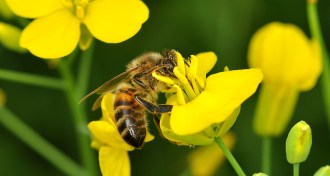 Animals
AnimalsBees may like neonicotinoids, but some may be harmed
Two high-profile tests raise worries that bees can’t avoid neonicotinoid pesticides and that wild species are at special risk.
By Susan Milius -
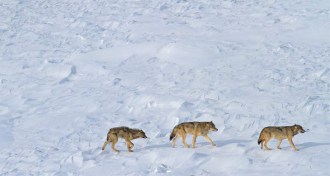 Animals
AnimalsOnly three wolves left on Michigan island
Without an infusion of new wolves, the Isle Royale wolf population, and the famous study associated with it, will die off.
-
 Particle Physics
Particle PhysicsParticle hunting in space, life in the urban jungle and more reader feedback
Readers discuss wheat's journey to England, share stories about urban wildlife and more.
-
 Space
SpaceDriving Curiosity to discovery
Discovery is driven by curiosity, on Mars and closer to home.
By Eva Emerson -
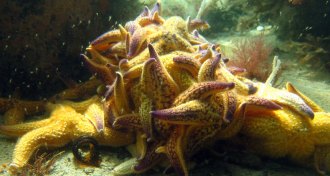 Animals
AnimalsGrowth of mining on land may promote invasions at sea
Ballast water taken in to keep ships stable could, when discharged elsewhere, release species that become invasive in their new homes.
-
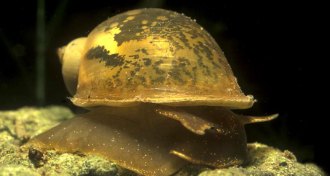 Life
LifeBolder snails grow stronger shells
Bold snails have tougher shells than shy snails. Understanding what drives snails to develop such differences is a bit of a challenge.
-
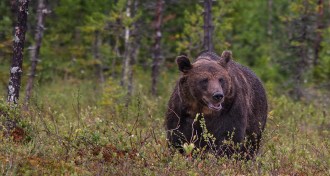 Animals
AnimalsFinland’s brown bears on surprise fast track to recover diversity
Brown bears in southern Finland show surprisingly fast improvements in genetic diversity and connections with other bears.
By Susan Milius -
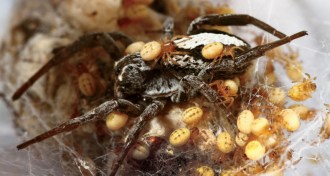 Animals
AnimalsWhen mom serves herself as dinner
For this spider, extreme motherhood ends with a fatal family feast.
By Susan Milius -
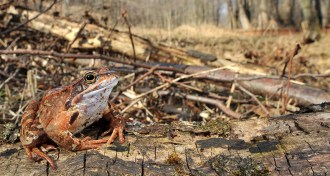 Animals
AnimalsWhether froglets switch sexes distinguishes ‘sex races’
Rana temporaria froglets start all female in one region of Europe; in another region, new froglets of the same species have gonads of either sex.
By Susan Milius -
 Plants
PlantsBits of bacterial DNA naturally lurk inside sweet potatoes
Samples of cultivated sweet potatoes worldwide carry DNA from Agrobacterium cousin of bacterium used for GMOs.
By Susan Milius -
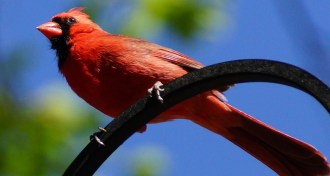 Ecosystems
EcosystemsBefore you plant this spring, consider the birds
A study of Chicago neighborhoods finds that the plants in private yards influence the variety of birds that live in the area.
-
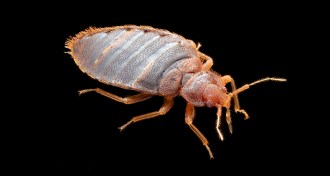 Animals
AnimalsTales of the bedbug, one of the world’s most reviled insects
‘Infested’ captivates with stories about the bloodsucking insects. Resurgent in many areas in the United States, bedbugs are the fastest-growing moneymaker in pest control.
By Sid Perkins